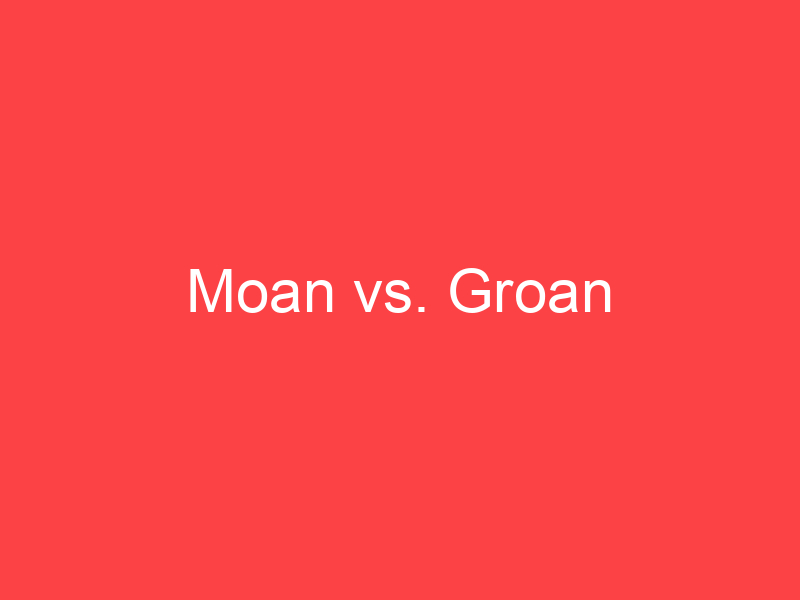-
Moan (noun)
a low, mournful cry of pain, sorrow or pleasure
-
Moan (verb)
To complain about; to bemoan, to bewail; to mourn. from 13th c.
-
Moan (verb)
To grieve. from 14th c.
-
Moan (verb)
To distress (someone); to sadden. 15th-17th c.
-
Moan (verb)
To make a moan or similar sound. from 18th c.
-
Moan (verb)
To say in a moan, or with a moaning voice. from 19th c.
“‘Please don’t leave me,’ he moaned.”
-
Moan (verb)
To complain; to grumble. from 20th c.
-
Groan (noun)
A low, mournful sound uttered in pain or grief.
-
Groan (noun)
A low, guttural sound uttered in frustration, disapproval, or ecstasy.
-
Groan (noun)
(of an object) A low creaking sound from applied pressure or weight.
-
Groan (verb)
To make a groan.
“We groaned at his awful jokes.”
“The wooden table groaned under the weight of the banquet.”
-
Groan (verb)
To strive after earnestly, as if with groans.
-
Moan (noun)
a long, low sound made by a person expressing physical or mental suffering or sexual pleasure
“she gave a low moan of despair”
-
Moan (noun)
a sound resembling a human moan
“the moan of the wind in the chimneys”
-
Moan (noun)
a complaint which is perceived as trivial and not taken seriously by others
“there were moans about the car’s feeble ventilation”
-
Moan (verb)
make a long, low sound expressing physical or mental suffering or sexual pleasure
“‘Help me,’ I moaned”
“just then their patient moaned and opened his eyes”
-
Moan (verb)
make a sound resembling a human moan
“the foghorn moaned at intervals”
-
Moan (verb)
lament
“we listen to the fierce Achilles moaning for his mistress”
-
Moan (verb)
complain or grumble, typically about something trivial
“passengers moaned about overcrowded coaches”
“my friend always moans that I never make her a cake”

